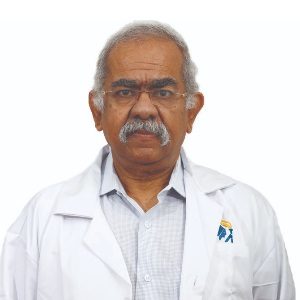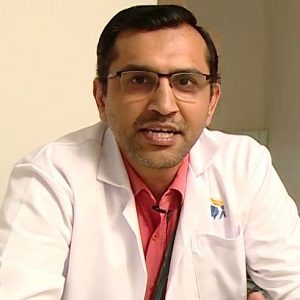Best Doctors in India for Splenectomy
- Surgical Gastroenterologist, Chennai, India
- Over 27 years’ experience
Profile Highlights:
- Dr. Surendran R is an experienced gastroenterologist from Chennai, Tamil Nadu.
- He has been rewarded for his contributions to the field several times. He received The Best Doctor award from the Tamil Nadu government (2002) in his name.
- Being a gastroenterologist, he specializes in treating patients with problems such as Bowel Obstruction, Pancreatic diseases, Esophagus disorders, Fistula treatment, etc.
- Gastroenterologist and GI Medicine Specialist, Chennai, India
- Over 23 years’ experience
Profile Highlights:
- Dr. Revathy Shanmugam is an experienced Gastroenterologist in Tamil Nadu, having an experience of 23 years in the management of GI disorders, Training & Teaching.
- She is highly skilled in the services like Liver Disease Treatment and Inflammatory Bowel Disease (IBD) Treatment.
- She has published various scholarly works in many National & International Publications of Medical Gastroenterology.
- Gastroenterologist and GI Medicine Specialist, Chennai, India
- Over 32 years’ experience
Profile Highlights:
- Dr. Hariharan Muthuswamy is a veteran Gastroenterologist and Hepatologist in India with 22 years of experience (specialist).
- Dr. Muthuswamy treated his patients with Non-Surgical Piles treatment, Liver Disease Treatment, Hepatitis E, Hepatitis A Treatment and Hepatitis B Treatment, Hemorrhoids Treatment, Colonoscopy, Stomach, and Intestinal Treatments, etc.
- He has a special interest in Capsule Endoscopy, Therapeutic Endoscopy, GERD, and Irritable Bowel Syndrome (IBS).
- Gastroenterologist and GI Medicine Specialist, Chennai, India
- Over 32 years’ experience
Profile Highlights:
- Dr. Mohan A T is a veteran GI medicine specialist in India with an experience of 32 years.
- Dr. Mohan, an alumnus of Madras University, is the Co-Ordinator of the Indian Society of Enteral and Parenteral Nutrition.
- He is an expert in treating Gastritis, acidity, Ulcerative Colitis, and many other Intestinal and bowel-related Treatments. In addition to these, he offers Colonoscopy, Gastroscopy, and Endoscopy.
- Gastroenterologist and GI Medicine Specialist, Chennai, India
- Over 15 years’ experience
Profile Highlights:
- Dr. Piramanayagam P is one of the young Gastroenterologists in India, having an experience of 15 years in the field.
- The doctor offer services like Gall Bladder (Biliary) Stone treatment, IBS treatment, Acidity Treatment, Endoscopy, and stomach and intestine dysfunction.
- He published many review articles and books under his name.
- Gastroenterologist and GI Medicine Specialist, Chennai, India
- Over 39 years’ experience
Profile Highlights:
- Dr. Sarojini Parameswaran is one of the renowned Gastroenterologist with an overall experience of 39 years.
- Dr. Parameswaran is brilliant and quick with diagnosis. She has 22 years of specialist experience.
- Gastroenterologist and GI Medicine Specialist, Chennai, India
- Over 24 years’ experience
Profile Highlights:
- Dr. Seshadri Venkatesh P is a well-known Gastroenterologist in India, having 24 years of experience in Stomach and Intestine disorders.
- Dr. Seshadri acquired proficiency in managing Bladder Cancer surgery, hemorrhoids, Irritable Bowel Syndrome (IBS) Treatment, etc.
- He holds membership in Tamil Nadu Medical Council.
- Gastroenterologist and GI Medicine Specialist, Chennai, India
- Over 40 years’ experience
Profile Highlights:
- Dr. Usha Srinivas is a Gastroenterologist in India with an experience of 40+ years in GI in medicine and academics.
- Patients visit her for consultation and treatment of abdominal pain, Gall Bladder (Biliary) Stone, Gastroenteritis, Jaundice, Colonoscopy, Steatosis, Constipation Treatment, Hepatitis C Treatment, Hepatitis E Treatment, Hemorrhoids Treatment, Piles Treatment (Non-Surgical), Gastritis Treatment, Ulcerative Colitis Treatment, and others.
- Gastroenterologist and GI Medicine Specialist, Chennai, India
- Over 18 years’ experience
Profile Highlights:
- Dr. Preethi M is one of the best gastroenterologists in India, with 18 years of expertise.
- Dr. Preethi received many awards for her contribution to the field.
- She offers consultation for Irritable Bowel Syndrome (IBS), Hemorrhoids, Endoscopy, female problems, and other gastrointestinal issues.
- Gastroenterologist and GI Medicine Specialist, Chennai, India
- Over 23 years’ experience
Profile Highlights:
- Dr. Ubal Dhus is a GI specialist doctor in South India who is proficiently managing Gastroenterological disorders for the past 23 years.
- He acquired his medical degree from Madras University, Chennai, and served people with Hemorrhoids Treatment, and Irritable Bowel Syndrome (IBS) Treatment.
Best Hospitals in India for Splenectomy
Venkateshwar Hospital, Dwarka, New Delhi
- City: New Delhi, India
Hospital Highlights:
- State-of-the-art technology and devoted healthcare professionals have been brought together under one roof at Venkateshwar Hospital to provide genuine medical care. The hospital’s professionals work together as a team to deliver the best possible treatment to their patients, using the most sophisticated equipment and information technology.
- Venkateshwar Hospital’s mission is to attain global excellence in healthcare by employing evidence-based, ethical clinical practices and cutting-edge technology by a team of highly skilled experts.
MGM Healthcare, Chennai
- City: Chennai, India
Hospital Highlights:
- Located in Chennai, India, MGM Healthcare is a top multispecialty hospital that provides all medical services under one roof.
- Since its founding in 2019, MGM Healthcare has quickly become a leading national referral centre, creating several innovative flagship initiatives.
- MGM Healthcare combines next-generation medical and digital technologies to provide better patient results.
- With 12 centres of excellence, more than 400 inpatient beds, 100 intensive care unit beds, and 24/7 emergency care, MGM Healthcare leaves no chance in redefining the patient experience in Chennai.
- MGM Healthcare boasts 250+ expert doctors across 30+ departments, including Cardiology, Pulmonology, Neurology, Obstetrics & Gynaecology, and more.
- They house 12 specialized Centres of Excellence, including Neurosciences, Orthopaedics, and Multi-Organ Transplantation.
- Their team of doctors, nurses, and paramedics works together to give every patient individualized treatment.
Splenectomy
Splenectomy is a surgery for removing the entire spleen. The spleen is a delicate organ, which is about the size of your fist. It sits under the left rib cage near your stomach. This organ helps the body fight against infections, and it contains special white blood cells that can destroy bacteria. It helps in removing and filtering old red blood cells from the body’s circulation as well.
Generally, the most common reason for this procedure is for treating a ruptured spleen, which is generally caused by an abdominal injury. It is also used for treating other conditions which includes an enlarged spleen that might be causing discomfort as well as few blood disorders, a few infections, cancers and noncancerous tumors.
If only a part of the spleen is removed, then the procedure is termed as a partial splenectomy.
Purpose
Splenectomy is used for treating a wide variety of diseases and conditions. Your doctor might recommend this treatment for you if you suffer from any of the following:
Ruptured spleen- If a severe abdominal injury causes your spleen to rupture, this can lead to internal bleeding and life-threatening conditions.
Enlarged spleen- Splenectomy might also be done to ease the symptoms of an enlarged spleen, which leads to a feeling of pain and fullness.
Cancer– Cancers that are treatable with splenectomy include chronic lymphocytic leukemia, hairy cell leukemia, Hodgkin’s lymphoma and non-Hodgkin’s lymphoma.
Blood disorder- Blood disorders that are treatable with splenectomy include polycythemia vera, idiopathic thrombocytopenic purpura and thalassemia. However, splenectomy is usually recommended only if other treatments have failed to reduce the symptoms of these disorders.
Cyst or tumor- If noncancerous cysts or tumors inside the spleen become large, splenectomy might be required.
Infection- Sometimes, due to a severe infection or the development of a huge collection of pus surrounded by inflammation in your spleen, spleen removal might be required, if it doesn’t respond to other treatment.
Your doctor might also remove the spleen to help diagnose a condition. This is done when you have an enlarged spleen and he/she is unable to determine the reason.
Preparation
If your doctor finds that you are having a ruptured spleen and you show signs of massive bleeding or unstable vital signs like low blood pressure, you might need to go for spleen surgery right away.
In other cases, your doctor will require a complete physical exam, blood work and tests to look at your abdominal and chest area. The exact tests that you have will depend on your age and condition. The tests might also include an X-ray, MRI, electrocardiogram and CT scan.
You might need to follow a special liquid diet as well as take some medication so that you are able to clean out your bowels prior to your procedure. Avoid eating or drinking anything the morning of your surgery. You will receive proper instructions from your doctor.
Prior to the surgery, you will receive some drugs which will prevent bacterial infections from developing after the removal of the spleen. In some cases you might receive a vaccine.
Procedure
Right before your surgery is performed, you will be receiving a general anesthetic. The surgical team will be monitoring your blood pressure, heart rate and blood oxygen throughout the entire procedure. Heart monitors will be attached to your chest. There will also be a blood pressure cuff on your arm.
Once you are unconscious, your surgeon will begin the surgery using a minimally invasive procedure or open procedure. If your spleen is large, it is likely that your surgeon will choose to perform an open splenectomy.
Laparoscopic splenectomy
In laparoscopic splenectomy, the surgeon makes four small incisions in the abdomen. Then he/she inserts a tube equipped with a small video camera into the abdomen through one of the incisions. Your surgeon will then watch the video images on a monitor. Then the spleen will be removed with special surgical tools that are put in the other three incisions. After this is done, the incisions are closed.
Laparoscopic splenectomy is not suitable for everybody. Generally, in cases of a ruptured spleen, open splenectomy is required. Sometimes, a surgeon can start with a laparoscopic approach but later find it necessary to make a larger incision. This can be due to scar tissue from complications or any previous operation.
Open splenectomy
After the procedure
You will be moved to a recovery room after the procedure. If you undergo laparoscopic surgery, you might need to go home the same day or one day after. If you undergo open surgery, you might be able to go home after two to six days.
Talk to your doctor regarding how long you need to wait, resting at home until you can resume your daily activities. If you have had laparoscopic surgery, it might require two weeks. After open surgery, it might require around six weeks.
After the procedure, your other organs will take over most of the functions which were previously performed by your spleen. Although you still can be active without the organ, there is an increased risk of getting sick or any serious infection. This risk is usually the highest right after the surgery.
Risks
Although splenectomy is generally a safe procedure, it carries the risk of a few complications which include:
- Bleeding
- Infection
- Blood clots
- Injury to any nearby organ, which can include your stomach, pancreas and colon














